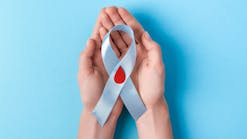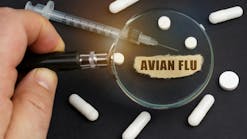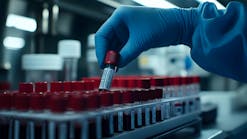The Observatory
News
Questions raised about overprescription of opioids.There have been murmurs about it for some time, in newspapers and magazines and on the Internet, but growing concern about physicians overprescribing OxyContin and other opioids for pain hit the headlines when The New York Times ran a story last month about the sensitive subject. According to the Times story, a leading Seattle, Washington-based healthcare system, Group Health, has begun controlling how the painkillers are prescribed, including limiting the number of prescriptions its physicians can write. Studies have linked opioids to a variety of bad effects, from psychological dependence to sleep apnea, hormone deficiency, and falls; fatal overdoses have occurred too. In Washington state, a new law is in effect that requires physicians to refer patients who take high dosages of such drugs as hydrocodone, fentanyl, methadone and oxycodone to pain specialists if the underlying condition—often back pain or arthritis—does not improve over a certain amount of time. Other states are considering similar legislation. On the federal level, the Centers for Disease Control and Prevention (CDC) has advised doctors to be more cautious in prescribing the drugs. The Department of Veterans Affairs has instituted programs to reduce their use among active troops and veterans. According to CDC statistics, nearly 15,000 people died in prescription painkiller-related incidents in 2008, the most recent year with reliable records. This story, which has obvious implications for the ER and the clinical lab, will bear watching.
New Studies
New blood test may help children with abdominal pain avoid CT scans. Abdominal pain is the most common reason that parents bring their children to the Emergency Room, and CT scans often must be performed to rule out appendicitis. Many clinicians have expressed concern over the effects of the associated radiation on young bodies—radiation that may be the equivalent of between 100 and 800 chest x-rays. The variability of symptoms that children with appendicitis present, along with the serious consequences of delayed diagnosis, have left ER doctors with little choice, however. Recently, Colorado-based Aspen BioPharma released results of a study that suggests that a blood test may soon be available that could enable ER physicians to rule out appendicitis in some juvenile patients without resorting to radiology. The 503-patient pilot study, conducted at 11 hospitals across the U.S., indicates that Aspen BioPharma's blood-based AppyScore assay can enable doctors to determine the level of risk of appendicitis, sparing young patients determined to be at low risk the need for CT scans. The assay, which consists of the company's patented MRP 8/14 biomarker and C-reactive protein, along with white blood cell count, showed a negative predictive value of 97% and sensitivity of 96%. It is in development and not yet approved for use, but it represents an intriguing new approach, and the promising results have led the company to make plans for further testing. Later this year, a pivotal clinical trial of AppyScore will be conducted, and results will be submitted to the FDA for market clearance.
New Assays
New test for metabolic disorder biomarkers has been developed. Zacharon Pharmaceuticals and University of California, San Diego School of Medicine researchers have developed a test for identifying biomarkers for mucopolysaccharidoses (MPS), a group of inherited metabolic disorders that until now generally have not been discovered until they present clinically. There are 11 different forms of MPS, all caused by the absence or malfunctioning of a lysosomal enzyme that breaks down and recycles complex sugar molecules called glycosaminoglycans. The body's failure to degrade these molecules results in their accumulation in cells and progressive, permanent damage that affects organ function, mental development, and physical abilities. Enzyme replacement therapy and stem cell transplantation are most effective against MPS if the disease is diagnosed early. The new assay aids early diagnosis by detecting carbohydrate structures specific to glycosaminoglycans in the cells, urine, and blood of MPS patients. Zacharon and the UCSD researchers are working on developing a commercial assay for differentiating forms of MPS, a screening test for newborns, and a test that measures the response of MPS patients to different therapies.
New Patents
Siemens granted patents for in vitro methods of diagnosing endometriosis. Siemens Healthcare Diagnostics was granted three U.S. patents for methods of diagnosing endometriosis, in an effort to identify immunological markers that may be useful in developing immunodiagnostic tests to help those afflicted by this disease. Endometriosis, characterized by the presence of endometrial tissue in abdominal locations outside of the uterus, is a serious disease that affects about 10% of females of childbearing age. Diagnosis is difficult in affected women and is ultimately dependent on invasive and surgical methods for confirmation. Women suffering with the disease endure symptoms for long periods of time, with significant medical expense, before definitive diagnosis can be made using surgical methods.
To help address this health issue, Siemens undertook a program to identify immunological markers useful in the in vitro diagnosis of endometriosis. The approach that was employed involved screening recombinant endometriosis proteins for reactivity with antibodies present in the serum of women who had the disease. Thousands of candidate markers were screened during the course of the multi-year study, with a few being selected that reacted with antibodies present in the serum of affected women. Siemens filed U.S. patent documents for some of these candidates, and was recently granted three by the United States Patent and Trademark Office.





